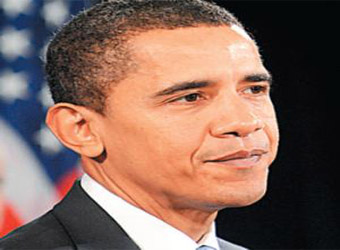The U.S. and 10 other nations pledged today to increase their support for rebel forces in Syria, without saying what specific steps they will take or how much firepower may be needed.
U.S. Secretary of State John Kerry and foreign ministers from countries including Saudi Arabia,Egypt, France and Germany adopted a joint statement after a meeting in Doha, Qatar, to allow “each country in its own way” to aid the Syrian rebels.
The lack of public agreement on a military strategy for aiding the Syrian opposition battling the regime of President Bashar al-Assad underscored divisions within the informal coalition. Nations such as Saudi Arabia and France have pushed for greater military firepower for the rebels, who say they need anti-tank and anti-aircraft weapons. The U.S. has so far agreed to provide light weapons.
“We sat as ministers in a very specific way discussing today what steps each country might or might not be able to engage in,” Kerry said at a joint press conference with Qatar’s Prime Minister Hamad Bin Jassim Bin Jaber Al Thani.
When asked what weapons the U.S. would provide, Kerry said, “I’m not at liberty and I’m not free to talk about” any specific arms.
While President Barack Obama has authorized providing small arms to the Syrian opposition, he’s stopped short of backing air strikes against Assad’s forces, a no-fly zone over Syria or heavier weaponry to battle the regime’s tanks and aircraft, according to a U.S. official familiar with the decision who asked not to be identified discussing the move.
Humanitarian Assistance
The lack of more aggressive action by the U.S. after two years of fighting has angered Saudi Arabia and other Sunni Muslim nations, according to another U.S. official who’s familiar with the Arab reaction and agreed to speak on condition of anonymity to discuss private diplomatic communications.
“We believe there is the need for humanitarian assistance, but we also believe there is a need for assistance that will make the opposition stronger,” Al Thani, who is also Qatar’s foreign minister, said at the press conference.
Countries in the coalition have made “special, secret agreements” among themselves on how to “change the situation on the ground in Syria,” he said.
Syria’s civil war has killed more than 93,000 people and driven more than 1.5 million refugees into neighboring countries, including Jordan.
‘Big Challenge’
The U.S. is keeping a detachment of F-16 fighter planes, Patriot missiles and 700 troops in Jordan after a recent training exercise ended, Obama told Congress on June 21.
“The administration has a big challenge,” Michael O’Hanlon, a defense analyst at the Brookings Institution in Washington, said in an interview this week. “It’s not clear that a few arms can make much of a difference. I see little evidence to back up that hope.”
Aside from the U.S., the coalition of countries backing the Syrian rebels comprise Qatar, Saudi Arabia, United Arab Emirates, Jordan, Egypt, Turkey, the United Kingdom, Germany, France and Italy.
The Syrian conflict has put the U.S. and Russia on a collision course. Russia supplies arms to Assad’s regime.
Russia’s foreign minister, Sergei Lavrov, said in a recent interview the U.S. move to arm the rebels is a “disaster” for efforts to end the civil war.
Russia’s Role
Kerry today singled out Russia for criticism, noting its role as a weapons supplier to Assad. He said Russia has helped Assad join forces with Iran and Hezbollah, even as Russia joins the U.S. in seeking a political solution to the conflict.
Lavrov said the Islamic extremist militia Jabhat al-Nusra is the “leading opposition force on the ground” because it’s the “most effective.” Jabhat al-Nusra, which has merged with al-Qaeda, was designated a terrorist group by the U.S. in December.
“They are terrorists and they must be treated as terrorists,” Lavrov said. “We have to unite, all of us, against the bad guys.”
Kerry said the agreement reached today commits all nations to channel any assistance for the rebels through the opposition’s Supreme Military Council — an effort to prevent weapons from falling into hands of extremists.
Syrian rebels largely drawn from the Sunni Muslim majority have been fighting to topple Assad’s Alawite-led regime since March 2011, a conflict that has drawn in Hezbollah, the Iran-backed militia based in neighboring Lebanon.
Kerry today called the intervention of Hezbollah, which the U.S. considers a terrorist group, a “dangerous development” in the evolution of Syria’s conflict.
Source: Bloomberg


